Blue Economy , Positioned as Catalyst for Nigeria’s Sustainable Development- Rear Admiral Akpan
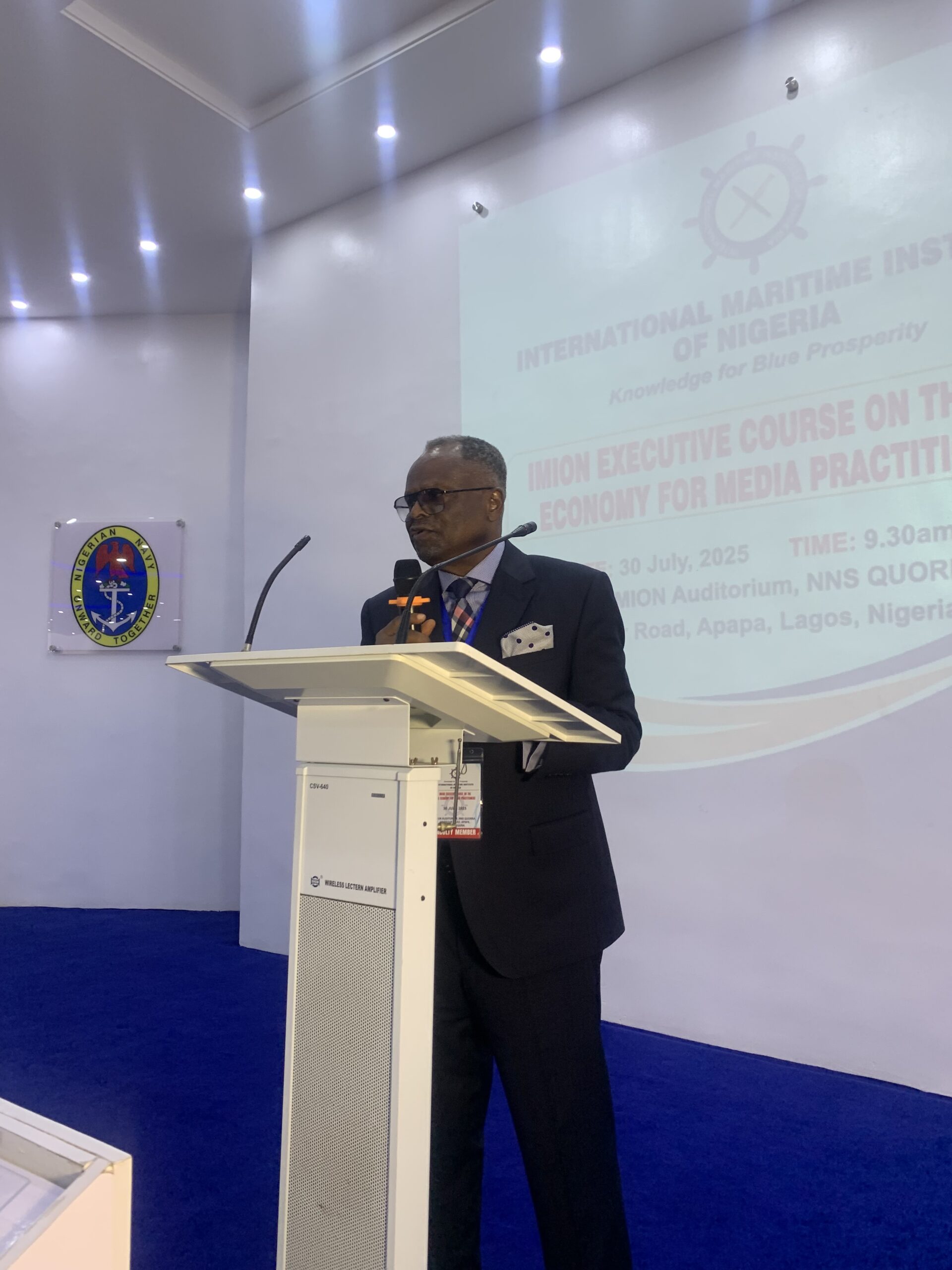
Rear Admiral (Rtd) Francis Akpan has stated that Nigeria’s vast maritime resources hold the key to the country’s economic transformation and environmental sustainability.
He said this during his paper presentation at the Executive Course on the Blue Economy for Media Practitioners, organised by the International Maritime Institute of Nigeria (IMION) on 30th July, 2025 in Lagos.
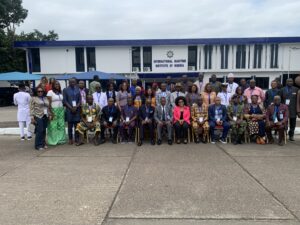
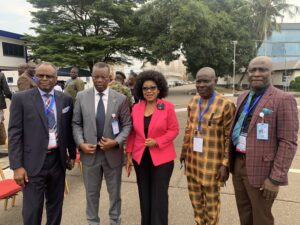
Speaking on Nigeria’s evolving approach to maritime development, the retired naval officer said that countries like Nigeria, with expansive coastlines, and Small Island Developing States, have expressed concern over the global overemphasis on the Green Economy, which often neglects the equally critical Blue Economy. He noted that the oceans, including the high seas recognised as the common heritage of mankind represent the final frontier for sustainable development.
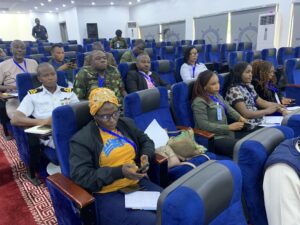
Akpan explained that the maritime domain covers a significant portion of the planet, constituting more than 95 percent of the Earth’s biosphere. According to him, oceans play a vital role in providing food and livelihoods for billions of people and serve as a major channel for global trade, handling over 80 percent of international shipping.
Highlighting Nigeria’s legal standing, Akpan noted that the country has been a signatory to the United Nations Convention on the Law of the Sea (UNCLOS) since it entered into force in 1994. He said this grants Nigeria the right to explore, exploit, conserve, and manage marine resources within its Exclusive Economic Zone (EEZ), which extends 200 nautical miles from its coastline.
He told participants that the Blue Economy narrative began gaining traction in Nigeria after the 2019 International Maritime Security Conference, eventually leading to the establishment of the Federal Ministry of Marine and Blue Economy in 2023. However, he observed that efforts in this sector remain at a pedestrian level, often resembling subsistence activities passed down from previous generations.
According to him, Nigeria’s Blue Economy vision aligns with the United Nations Sustainable Development Goals (SDGs), particularly Goal 14, which promotes the conservation and sustainable use of ocean resources. He added that the country’s strategic thinking draws from the World Bank’s framework of responsible ocean resource utilisation to enhance economies, livelihoods, and ecosystem health.
Akpan revealed that Nigeria’s maritime domain spanning over 84,000 square nautical miles is becoming increasingly important, with over 5,000 vessels calling at Nigerian ports and jetties annually. He projected that these numbers will rise with the ongoing development of infrastructure such as the Dangote Refinery, Lekki Deep Sea Port, and the proposed Ibom and Badagry Deep Sea Ports.
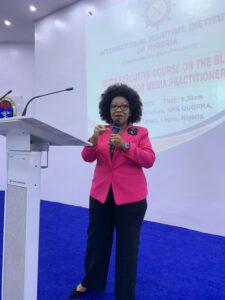
He further noted that the country’s fisheries sub-sector is multifaceted and remains critical to food security and the economy. With vast inland and coastal waters, Nigeria boasts a thriving fisheries sector that could serve as a cornerstone of its Blue Economy if adequately harnessed.
He also disclosed that Nigeria’s maritime sector faces persistent challenges such as port congestion, shallow channels, and inefficient cargo handling processes. Currently, stating that it takes a minimum of four weeks to clear cargo at Nigerian ports, compared to 8–12 days in Togo, 10–15 days in Benin, and just six hours in Singapore. These delays he said will undermine trade efficiency. Investments in port infrastructure and digital technology are critical to easing congestion, reducing bureaucracy, and enhancing transparency in port operations.
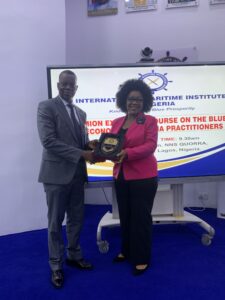
He stressed that though Nigeria is Africa’s largest ship owning nation, its global share is under 1%. Maritime transport contributes just 1.09% to GDP, but with better coordination across ministries, it could rise significantly up to 20% by tackling issues like security, funding gaps, and environmental threats.
Akpan , recommended that to unlock this potential, Nigeria must align with global frameworks like SDG 14 and UNCLOS. Projects like deep-sea port development and modernized fisheries infrastructure are vital to increasing yields, reducing waste, and driving sustainable economic growth.
Director General of IMION, Rear Admiral Thaddeus Christopher Udofia (Rtd), in his address, emphasised the critical role of the media in shaping public discourse, influencing policy, and promoting environmental stewardship in ocean governance.
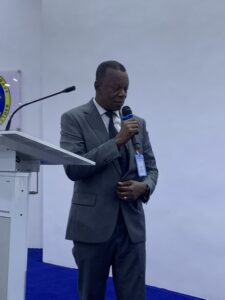
Udofia described the course as a timely intervention to empower journalists with the knowledge and tools needed to report accurately and meaningfully on marine conservation, sustainable fisheries, blue energy, and other key sectors of the Blue Economy. He stressed that the oceans, while vital to global life and livelihoods, are increasingly threatened by climate change and unsustainable practices. Media professionals, he noted, must evolve from mere reporters to storytellers, watchdogs, and agents of change capable of highlighting both challenges and opportunities within the maritime domain.






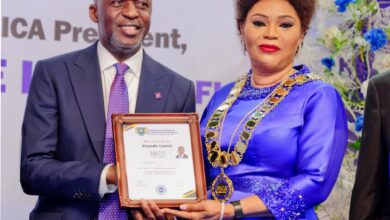

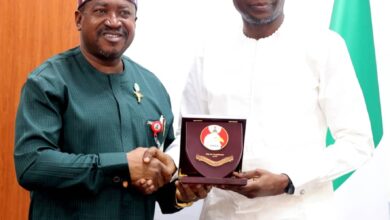
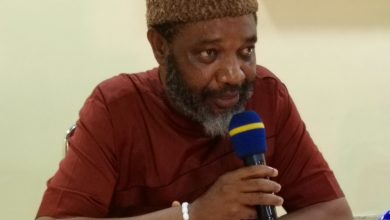
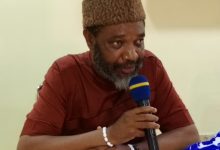

One Comment